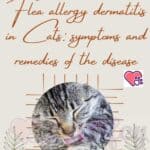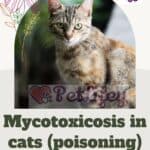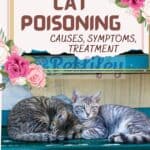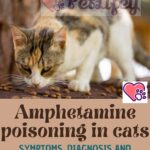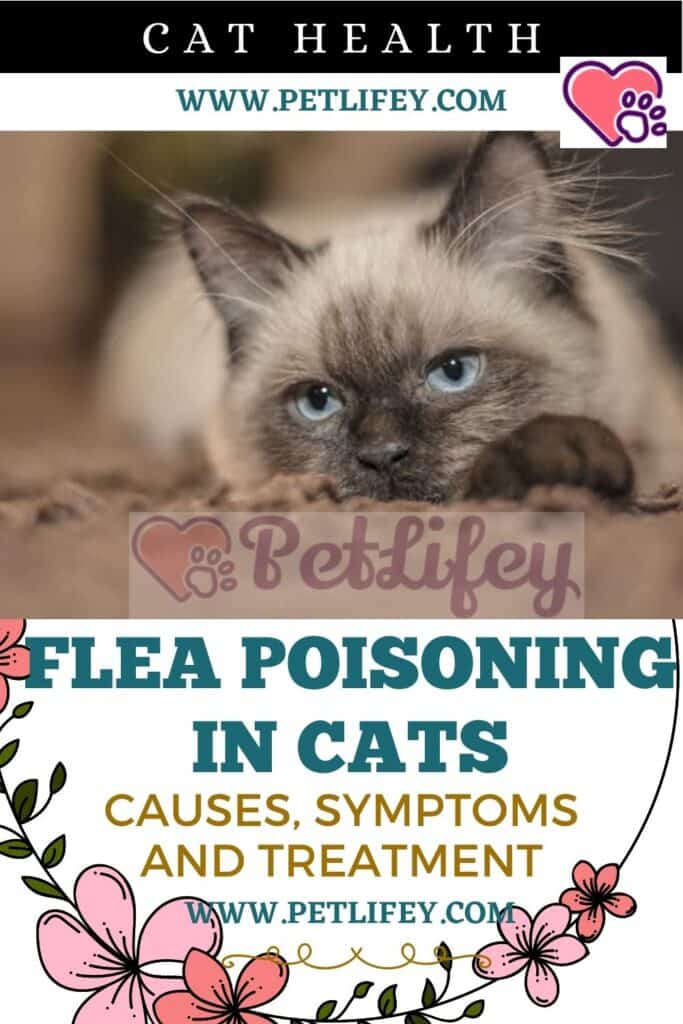
Flea poisoning in cats. How many times has our cat been close to disgrace. Let’s see what the causes, symptoms and treatment are.
The dream of all of us animal lovers is to build a house that is proof of four-legged friends. This is somewhat difficult but not impossible.
The desire arises from the fact that cats in particular, and whoever has one knows it, are animals that very often put themselves in danger.
What happens when our home is a source of risk for our furry friends, could be quite dangerous or at least harmful to the life of the cat.
Our carelessness, such as leaving around toxic products for the animal could endanger the life of our cat.
For example, flea poisoning in cats could occur. This is the topic that we will deal with in the next paragraphs.
Cause of flea poisoning in cats
The cause of flea poisoning in cats is the presence of a substance within these products, which is known as pyrethrin.
A natural organic compound derived from the chrysanthemum flower seed shells.
This insecticide works by attacking the nervous system of insects but remaining not dangerous to mammals (the important thing is that the levels are very low).
It is a very effective insecticide used in pet products to ward off fleas and other insects and to drive away insects from food plants.
Toxicity can also occur following ingestion, or when the cat in its daily hygiene operations licks or licks other animals that have also been treated with pyrethrin-based anti-fleas.
The cat is more prone to flea poisoning than the dog and is therefore much more common that after treatment with a flea or tick product they can feel sick.
This is because the products used for the cat are much stronger, with a higher level of pyrethrins than a flea repellent that has been formulated for dogs.
Another case in which flea poisoning or toxicity occurs in cats is when too much product is used or even a compound that has been formulated for a different species, such as the dog.
Symptoms
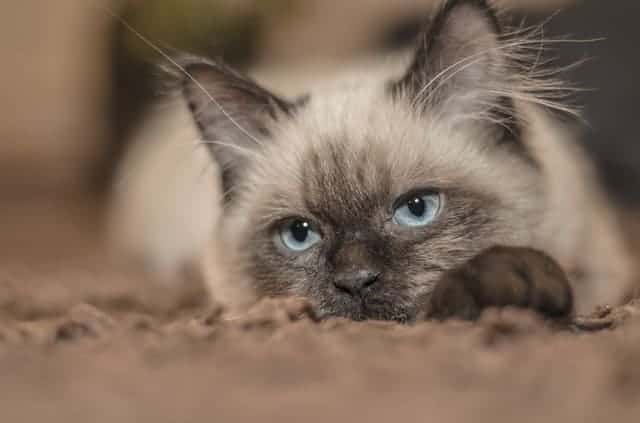
Symptoms that can occur due to flea poisoning in cats can be the following:
- excessive salivation;
- muscle tremors;
- staggering (ataxia);
- temperature increase;
- lack of appetite;
- apathy;
- convulsions
- agitation;
- excitement;
- vomiting, diarrhea in cats ;
- hypersensitivity to noise;
- hypersensitivity to light;
- breathing difficulties or hyperthermia (less common).
In the presence of these signs that suggest cat poisoning, it is advisable to go with the animal to the veterinarian or the nearest animal clinic, as it is to be considered a first aid situation.
What you can do as a first aid to your cat is to get rid of a flea collar or other insect repellent device, if the animal has one.
Diagnosis and treatment of flea poisoning in cats
In order to establish a correct diagnosis, the veterinarian will have to analyze the previous history of the animal. Trying, therefore, together with the owner, to reconstruct the cat’s entire day.
This will be useful to understand, on what occasion the cat could have come into contact with the compound, if it had not been the owner himself to administer an excessive amount of product on the animal’s skin.
Once the diagnosis has been established, the veterinarian will intervene on the treatment of the symptoms in order to calm and control the animal’s tremors and possible convulsions, hydrating it at the same time.
Where the animal should be serious, hospitalization is the ideal solution until the cat’s condition improves. In any case, the best solution is always prevention.
This means that it is necessary to carefully read the doses to be applied, not to use unsuitable products and not to replace them with those of the dog.
It is important to know that the amount of pyrethrin used in a formula often varies based on the cat’s weight. Finally a tip that the experts is to keep separate the cats that are treated as they have a tendency to lick each other and this promotes intoxication.

